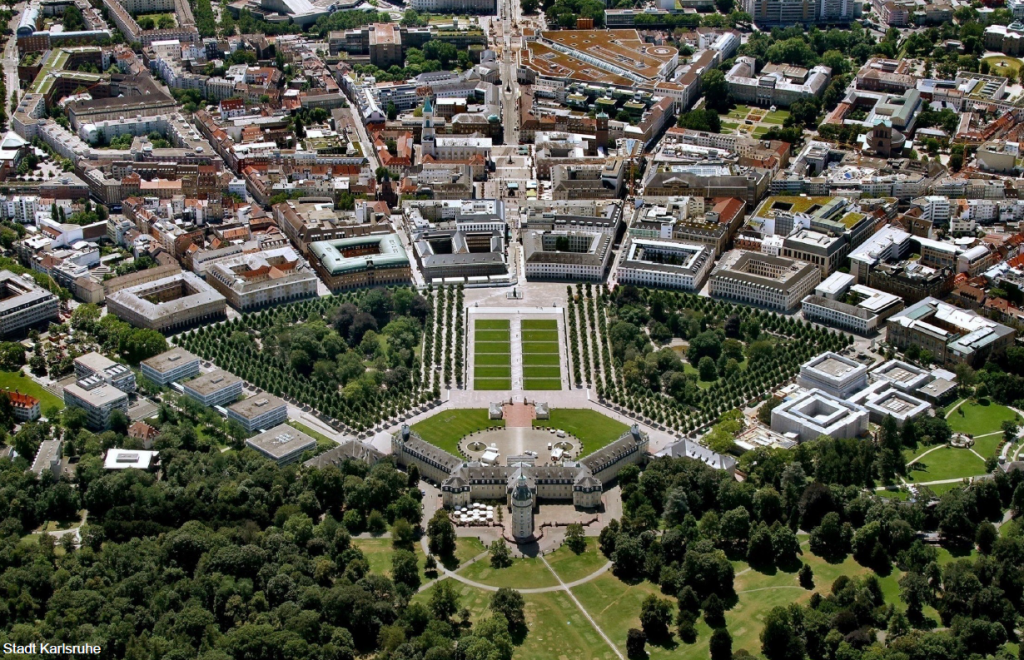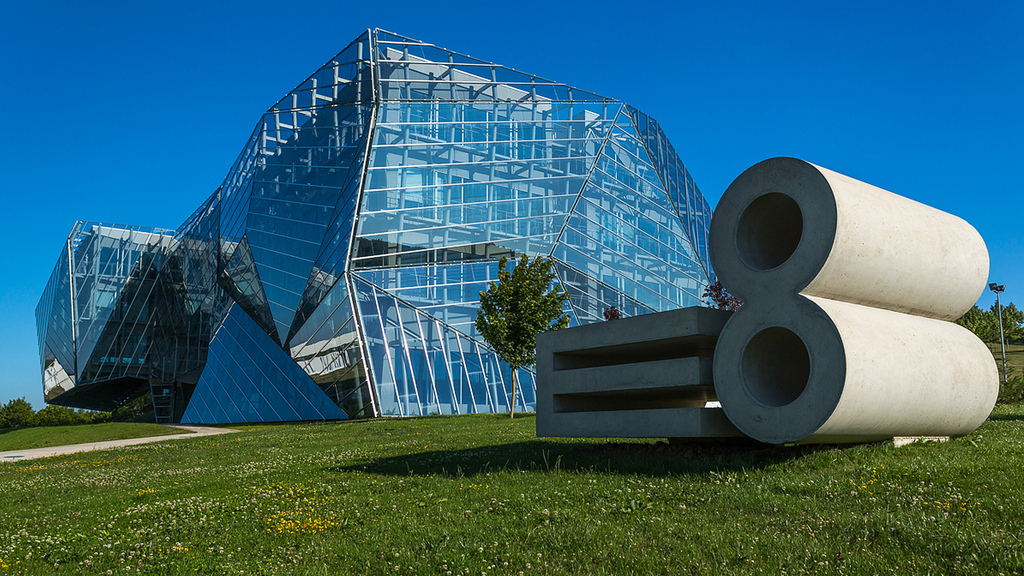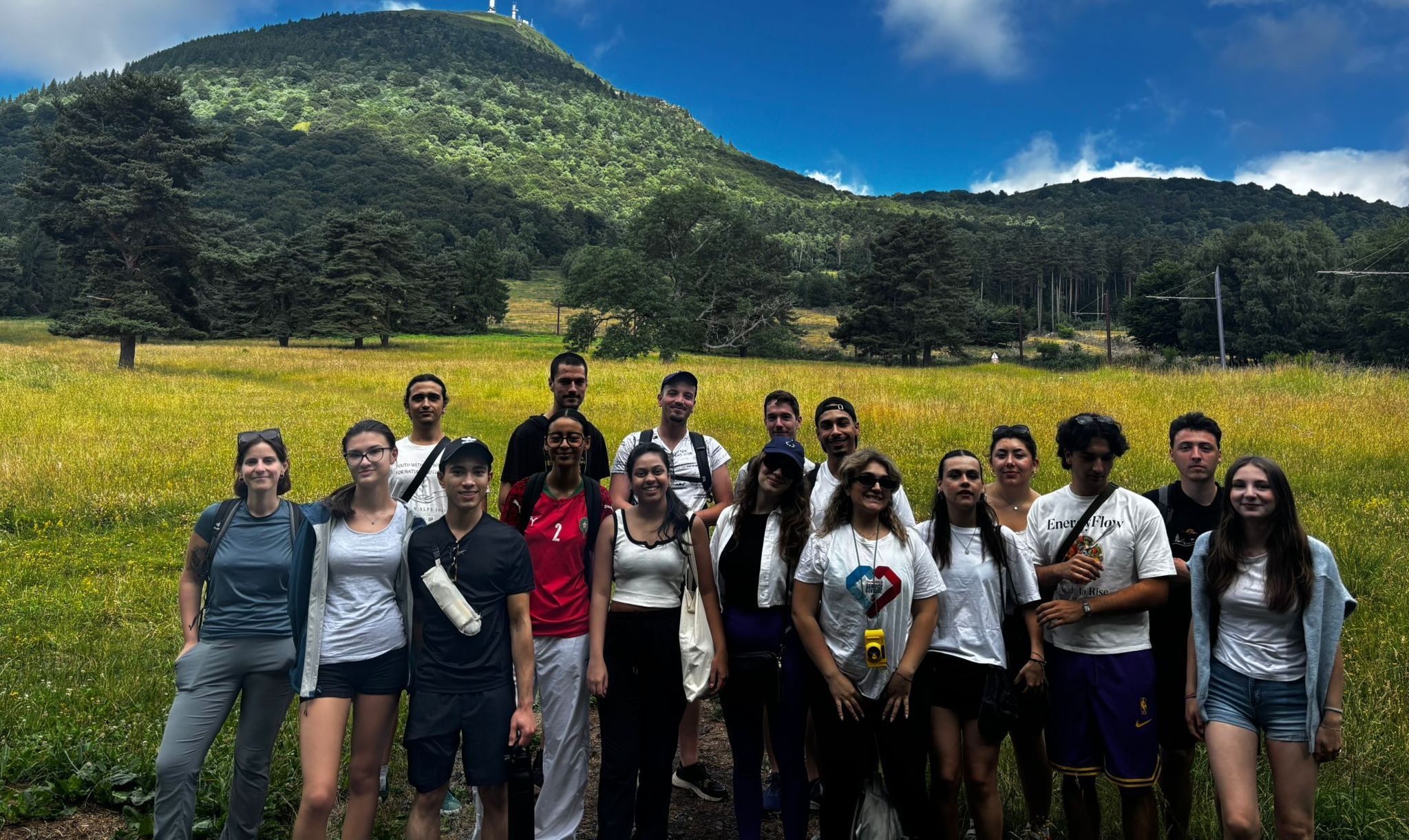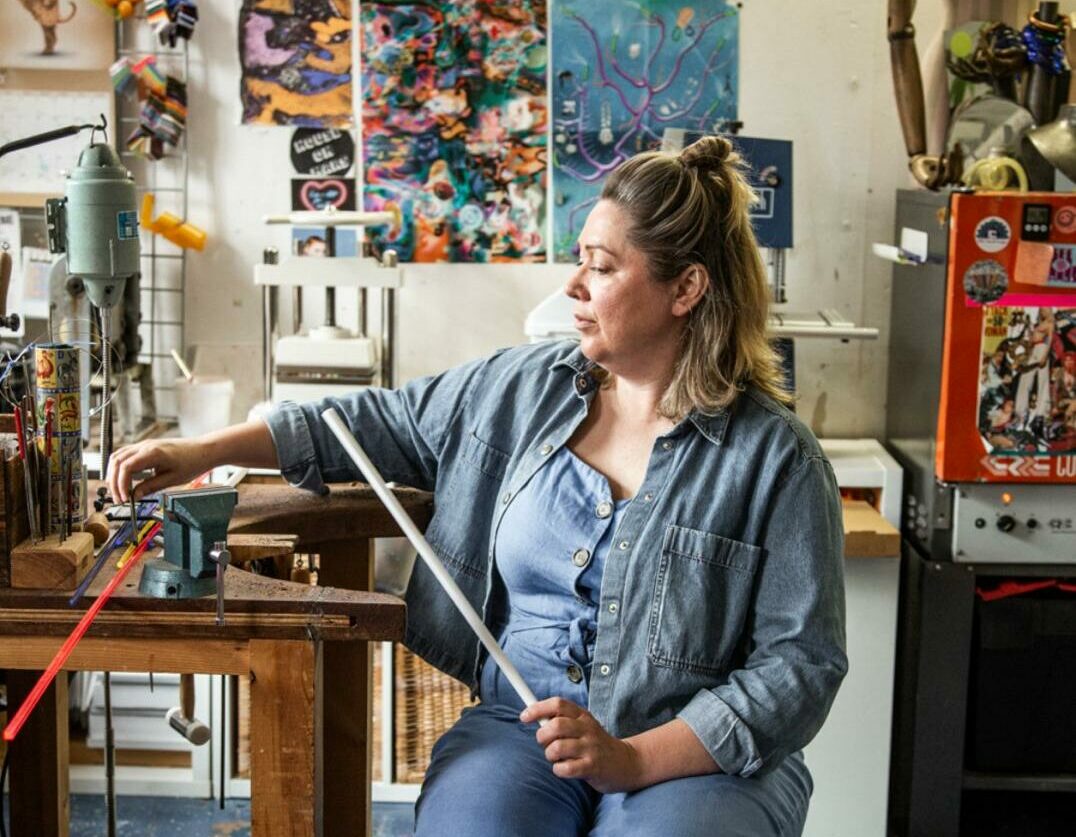POLIS 2024: a not-to-be-missed event for INMC Mobility Lab member cities
The INMC met in Karlsruhe, Germany, from November 26 to 28, 2024, to take part in Europe’s largest conference on sustainable mobility, “POLIS 2024”. Seven member cities were present, represented by their mobility experts: Aranda de Duero and Vitoria-Gasteiz (Spain), Braga (Portugal), Clermont-Ferrand (France), as well as Bad Kreuznach, Karlsruhe and Regensburg (Germany). In addition to being members of the INMC, Karlsruhe, host of this year’s POLIS Conference, and Vitoria-Gasteiz are also members of the POLIS network. For INMC experts and representatives from non-POLIS member cities, the cost of admission to the Conference and access to the POLIS dinner and special event was fully covered by the Network.
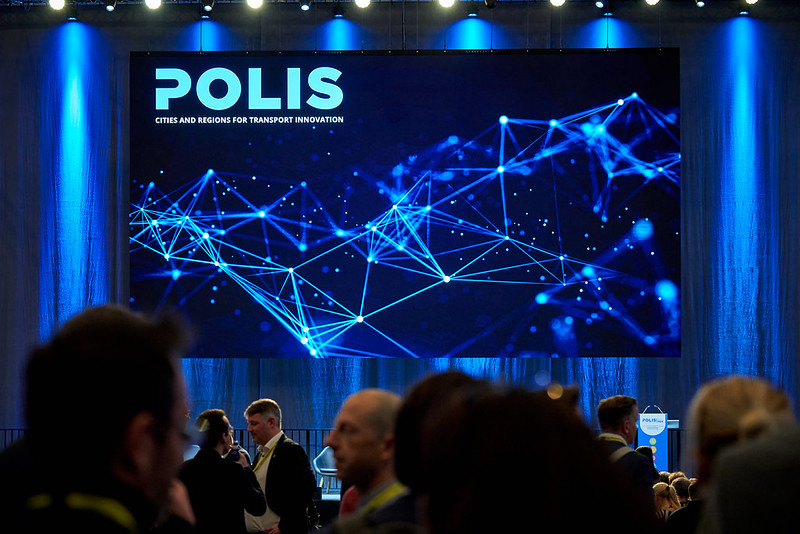
A Conference that embodies cooperation between cities on the subject of mobility
Attended by around 1,000 participants, the Conference provided an opportunity for the 130 cities, regions and universities that are members of the POLIS network to present their latest work, innovations, data and feedback to the general public, as well as the progress they have made in many areas of mobility.
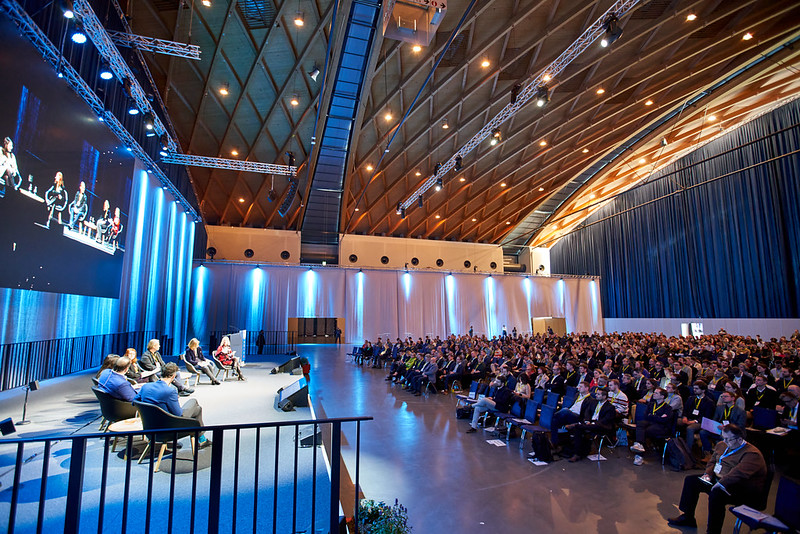
INMC members were able to choose from a wide range of parallel sessions on subjects such as the reduction of speed limits in cities, the last mile, the accessibility of shared mobility, acceptability and changing mentalities, mainstreaming cycling, the electrification of buses, the carbon neutrality of cities, and so on. Various approaches, whether political, scientific or technical, are currently being tested and, in some cases, adopted by European cities, both capital cities and smaller towns, all of which are involved in major urban development projects. Drawing inspiration from best practice in Europe and ensuring that these networks of expertise and experimentation (POLIS and INMC) benefit as many cities as possible was the central objective of these meetings.
A Mobility lab organized by the INMC alongside POLIS 2024
Th INMC organized a Mobility lab, in a hybrid format, enabling other members of the Network to participate by videoconference. As a result of extensive preparatory work between the INMC secretariat, the City of Karlsruhe, the Syndicat Mixte des Transports en Commun (SMTC) and the Direction du Commerce, des Usages et du Partage de l’espace public (DCUPEP) of the City of Clermont-Ferrand, the key theme chosen for this lab was the decarbonization of transport, approached from the angle of the ‘mobility equation’.
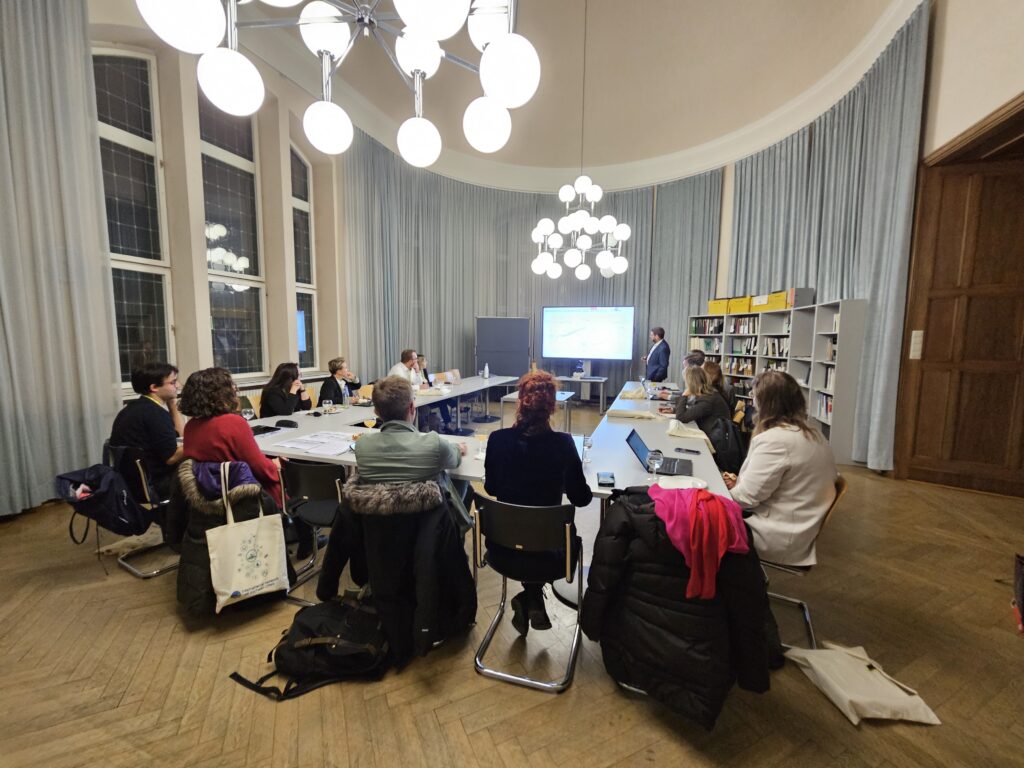
Decarbonizing transport and the mobility equation at the heart of the INMC lab
Resulting from a major thesis by Aurélien Bigo, the mobility equation reflects the idea that the amount of CO2 released into the atmosphere as a result of urban transport depends on five levers: transport demand, modal shift, vehicle occupancy rates, vehicle energy efficiency and the carbon intensity of the energy sources used. According to Aurélien Bigo, it is possible to act on these levers to reduce the total amount of CO2 emitted into the atmosphere by cities.

Taking the mobility equation as its starting point, the aim of the lab was to get the cities to lay the foundations for a joint project, generate input for future discussions and provide towns and cities with the added value so dear to the Network. In this case supporting its members in their transition towards a model of cities that is ever more respectful of the environment, the well-being and health of their inhabitants. These ambitions were strongly reaffirmed by Jérôme Auslender, Deputy Mayor of Clermont-Ferrand in charge of International Relations and the INMC, present at the lab and the POLIS Conference as part of the INMC delegation.
Numerous expert speakers and the active participation of towns and cities make for a lively and informative lab
As an introduction to the lab, Professor Christoph Hupfer from the Karlsruhe Institute of Applied Sciences for Transport and Infrastructure gave an inspiring presentation on the need to rethink the way we travel and our modes of transport, particularly public transport. He emphasized the crucial role of public authorities and cities in ensuring the availability and effectiveness of alternatives to conventional modes of transport, a message that was particularly relevant to the audience at the lab that day.

Anne Pfaff-Raimbourg, SMTC Director of Communications, in collaboration with Graziella Brunetti, Director of the DCUPEP, gave a detailed presentation of the mobility equation and the five levers of decarbonisation. Clermont-Ferrand’s initiatives were presented by way of illustration, enabling the other cities in the Network to, in turn, share the actions they are implementing in relation to the first decarbonisation lever, namely transport demand. Comparing the measures specific to each city enabled some preliminary lessons to be drawn, notably that the majority of those presented concern urban planning and densification policies, with several cities mentioning their Urban Mobility Plan.
To close the lab, Anke Karmann-Woessner, Director of Urban Planning for the City of Karlsruhe, presented the major transformations that her city has undergone in recent decades. She highlighted the redevelopment of urban space and the development of public and alternative modes of transport. Thanks to exemplary and ambitious policies, such as the under-grounding of the tramway in the city centre and the conversion of the tramway into a regional train at the city limits, Karlsruhe is now a model city in Germany. It goes without saying that it is also a source of inspiration for other INMC cities.
After Karlsruhe: prospects for a joint project within the INMC
The work initiated at this workshop will continue over the coming months within the INMC Mobility Lab. The aim is to ‘get to the bottom of the equation’ for each city, by ensuring that each actively participates in collecting the most exhaustive data possible relating to the five decarbonization levers. Building up a sufficiently extensive database will then enable in-depth comparative analysis. On the basis of the results obtained, recommendations tailored to the realities and challenges of each city will be formulated, so that together we can work towards ever more ambitious decarbonization targets.
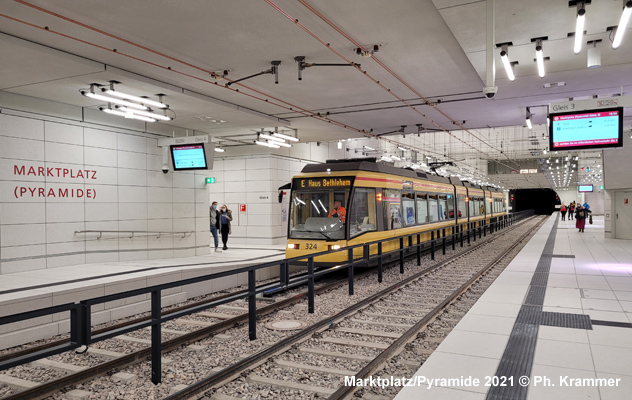
For a detailed report on the INMC’s visit to POLIS 2024, including appendixes, please refer to the document below.
